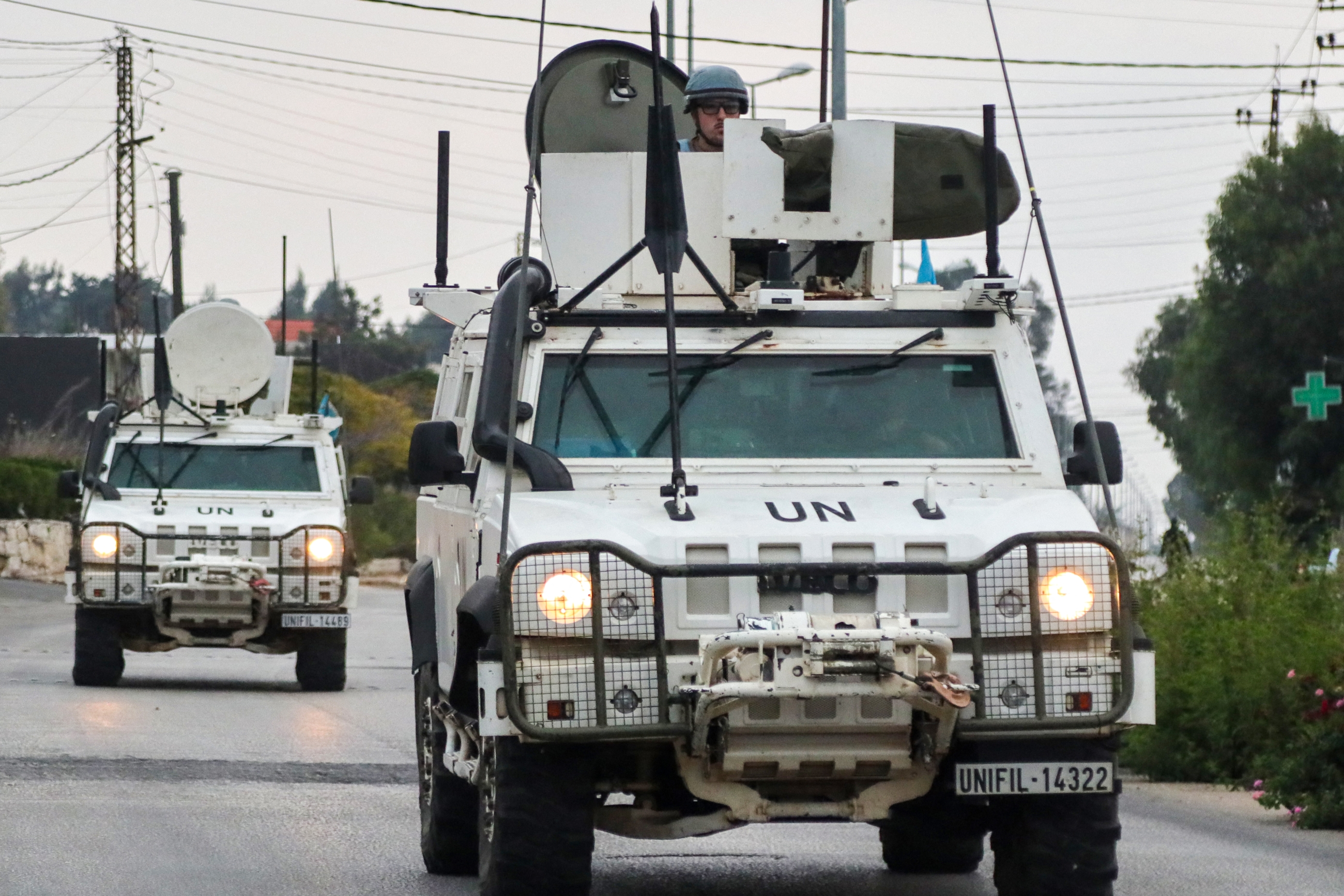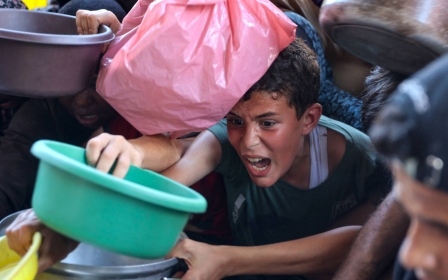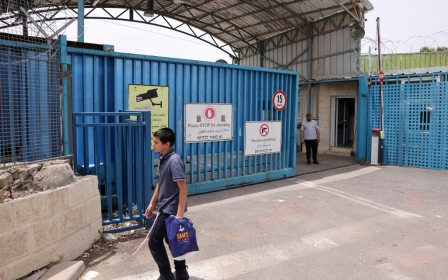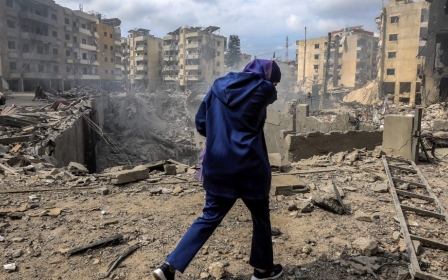Israeli assault on UN peacekeepers sparks widespread condemnation

Two personnel from the United Nations Interim Force in Lebanon (Unifil) were wounded Friday after being targeted by the Israeli army in southern Lebanon, leading to global condemnation.
Unifil's headquarters in Naqoura was hit twice within 48 hours, according to a Unifil statement.
"Any deliberate attack on peacekeepers is a grave violation of international humanitarian law and Security Council resolution 1701 (2006)," the statement posted on X said.
One of the wounded is being treated in Tyre while the other is receiving treatment in Naqoura, but the extent of the injuries was not made public by the UN.
Israel's war on Lebanon has involved extensive air strikes targeting several parts of the country including central Beirut, Hezbollah leadership and its commanders plus a ground invasion of southern Lebanon.
New MEE newsletter: Jerusalem Dispatch
Sign up to get the latest insights and analysis on Israel-Palestine, alongside Turkey Unpacked and other MEE newsletters
The Lebanese health ministry on Thursday said the death toll from Israeli attacks has hit 2,169, with 10,212 injured since 8 October 2023.
The Israeli military said in a statement it was conducting a thorough review after being notified of what it described as UN peacekeepers being "inadvertently" wounded in southern Lebanon.
The Israeli army claimed on X that their soldiers were responding to a threat and that the Unifil position was located 50 metres from the "source of the threat" they had identified, adding that hours before the incident they had "instructed" Unifil personnel to enter into "protected spaces and remain there".
But the targeting follows another incident on Thursday where two Indonesian peacekeepers were wounded by an Israeli Merkava tank fired toward an observation tower at Unifil’s headquarters, according to a statement put on Unifil's website the same day.
"The injuries are fortunately, this time, not serious, but they remain in hospital," the statement says.
The statement accuses Israel of deliberately targeting its personnel and positions.
It mentions that Israel fired on UN positions in Labbouneh, hitting the entrance to the bunker where "peacekeepers were sheltering, and damaging vehicles and a communications system".
An Israeli drone could be seen flying inside the UN position "up to the bunker entrance", according to the statement.
It added that Israel "deliberately fired at and disabled the position’s perimeter-monitoring cameras" and also, "deliberately fired on UNP 1-32A in Ras Naqoura, where regular Tripartite meetings were held before the conflict began".
"We remind the IDF and all actors of their obligations to ensure the safety and security of UN personnel and property and to respect the inviolability of UN premises at all times."
Global condemnation
United Nations secretary general Antonio Guterres on Friday described the targeting as "intolerable" and said "they must not be repeated".
Spanish Prime Minister Pedro Sanchez on Friday called on the international community to stop selling weapons to Israel and condemned Israel's attacks against Unifil.
"Let me at this point criticise and condemn the attacks that the Israeli armed forces are carrying out on the United Nations mission in Lebanon," Sanchez said after meeting Pope Francis at the Vatican in Rome.
On Friday, France's Emmanuel Macron said it would not tolerate the "deliberate" targeting of UN peacekeepers by Israel and summoned Israel's ambassador to the country to seek an explanation of the incident.
"These attacks constitute serious violations of international law and must stop immediately," the French foreign ministry said on Friday, adding that all warring parties have an obligation to protect peacekeepers.
France has around 700 troops as part of the Unifil mission. French troops have not been wounded.
US Secretary of Defence Lloyd Austin said on Friday he told his Israeli counterpart to ensure the safety of UN peacekeepers along the demarcation line between Israel and Lebanon.
In his phone call with Yoav Gallant on Friday, Austin said he "urged ensuring the safety of Unifil forces and coordinating efforts to pivot from military operations to a diplomatic pathway as soon as feasible".
Washington has declared its support for Israel's invasion of Lebanon, saying it has the right to defend itself.
China on Friday expressed "grave concern and strong condemnation" of Israeli attacks on UN peace operations.
"China expresses grave concern and strong condemnation over the Israeli Defense Forces' attack on Unifil positions and observation posts, which resulted in injuries to Unifil personnel," foreign ministry spokeswoman Mao Ning said, referring to the UN peacekeeping force in Lebanon.
"Such actions must be stopped immediately," Mao said, calling for an "investigation into the incident, accountability for those responsible, and measures to be taken to prevent a recurrence".
Lebanon's caretaker Prime Minister Najib Mikati denounced the attack on the Unifil peacekeeping force in southern Lebanon on Friday as a crime.
He also said he had discussed efforts to reach a ceasefire in Lebanon with US Secretary of State Antony Blinken.
The ground invasion has focused on southern Lebanon, where Unifil - which has around 10,000 officers - has operated since 1978.
Since the last Israel-Hezbollah war in 2006, Unifil is the only military force apart from the Lebanese army that should be deployed between the Israeli border and the Litani River, 30 kilometres north of the border, under UN Resolution 1701.
Following its invasion, Israel ordered a number of Unifil outposts to leave, which the organisation refused.
Middle East Eye delivers independent and unrivalled coverage and analysis of the Middle East, North Africa and beyond. To learn more about republishing this content and the associated fees, please fill out this form. More about MEE can be found here.





